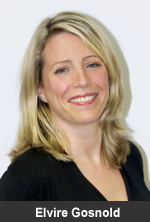 Philip Carse, industry analyst at Megabuyte.com, reports on the recent trading performances of leading companies operating in the comms space.
Philip Carse, industry analyst at Megabuyte.com, reports on the recent trading performances of leading companies operating in the comms space.
UK quoted Telecoms & Networks companies have not proved immune to general stock market concerns and volatility, with one and three month declines of 7% and 16% outpacing the FTSE All Share's 3% and 6% falls over the same period. This is also a worse performance than the general Megabuyte universe of tech companies, down 3% and up 5% over the same period. This appears to have put a stop to the bull run of Telecoms & Networks companies in recent months, with a flat performance over the last year versus -7% for the FTSE All Share and +25% for the Megabuyte index.
One key driver of the poor performance in recent months has been TalkTalk, down about 35-36% over the last three and 12 months, following its well publicised security breach and the resulting £30-35m impact on FY15/16 profitability, or an approximate 10% hit.
The major sector news in the last month or so has been the CMA's approval of the BT acquisition of EE. The CMA justifies its unconditional go-ahead on the basis of very limited overlap between BT's fixed and EE's mobile activities at the retail level (has it not heard of quad play?). Regarding the wholesale impact, the CMA notes Ofcom's ongoing strategic review, thus effectively leaving any major decisions on Openreach to Ofcom. As a reminder, the deal combines the UK's two largest telecoms players, with EE's £6.4bn of annualised revenues and £1.6bn of EBITDA representing a 36% and 25% addition to BT's £18bn and £6.3bn. It would, however, almost double BT's Consumer and Business retail revenues of £7.4bn.
Another area of interest recently has been in fibre networks, with both tier 2 town and city fibre network provider CityFibre and rural broadband Gigaclear advancing their causes. CityFibre acquired KCOM's national network for £90m, funded through an £80m equity raise and new debt. The network, which CityFibre said would cost £200m to build today, significantly enhances its metropolitan footprint and gives it a new long distance network, advancing its business plan by five to seven years. Meanwhile, KCOM benefits from a substantial reduction in net debt.
Gigaclear received 25m euro in debt funding from the European Investment Bank, as part of a planned £90m funding this year, which will help fund 2016's planned 40,000-premises rollout. This comes on top of 15,000 live premises and 10,000 under construction as at the end of 2015.
In other corporate activity, Motorola Solutions is to acquire Macquarie-backed UK public safety network provider Airwave for £764m net of cash acquired. The price represents barely 3.1x EBITDA to June 2014, reflecting the wind-down of Airwave's TETRA network as the UK Government looks to 4G mobile networks for a lower cost alternative, and represents a thumping loss on Macquarie's £1.9bn 2007 acquisition. Shortly afterwards, Motorola was announced as the provider of end user services for the 4G-based public safety network, with EE gaining the network contract.
There have also been deals involving Intercity and COLT, though in opposite strategic directions. Intercity Telecom acquired Imerja, bringing IT managed services, hosting and security, adding approximately £10m revenues growing at 40% a year, and taking Intercity to about £35m revenues. In contrast, Aurelius Group-backed ICT provider Getronics announced the proposed acquisition of COLT Group's managed cloud business for an undisclosed sum, after COLT threw in the towel on its IT services business last June, baulking at the costs needed to get to profitability. This was highlighted with first half 2015 EBITDA losses of 7.7m euros on revenues down 14% at 33.3m euros.
In results news, comms and IT provider Alternative Networks announced 13% EBITDA growth to £22.1m on revenues up 9% to £146.8m for the year to September 2015 (10% and 4% organic), with the usual exemplary cash conversion. The year was a significant one in the development of Alternative Networks in terms of management, product, systems and operations, with the company's positive outlook reflecting the fact that it now generates as much revenue from managed services, hosted desktop and IT professional services as from its once core fixed voice services.
Private companies reporting results recently include contact centre specialist Sabio (revenues up 21% to £41.7m, combined with rising margins and very strong cash conversion); Wavenet (flat EBITDA on revenues up 19% to £12m, due to growth investments); and SSE Telecoms (EBITDA halved on revenues down 5% to £35m, but orders up strongly subsequently due to network and product enhancements).

 Fast growing SIPHON Networks' cloud UC mission could come to dominate, according to Steve Harris, co-founder and Managing Director, who says the company's reseller engagement strategy strikes a harmonious chord with an expanding posse of channel partners.
Fast growing SIPHON Networks' cloud UC mission could come to dominate, according to Steve Harris, co-founder and Managing Director, who says the company's reseller engagement strategy strikes a harmonious chord with an expanding posse of channel partners. Cardiff-based TWL Voice and Data has spent the past two years getting into tip top operational condition. Here, Managing Director Andrew Nicholson discusses the fitness programme and how it has become a key component of his growth strategy.
Cardiff-based TWL Voice and Data has spent the past two years getting into tip top operational condition. Here, Managing Director Andrew Nicholson discusses the fitness programme and how it has become a key component of his growth strategy. By Elvire Gosnold, Director, Blabbermouth Marketing: Are you sticking to your New Year's resolutions? Even if you have lost interest in your lifestyle resolutions, there is still time to set a few simple action points to steer your 2016 marketing activity in the right direction.
By Elvire Gosnold, Director, Blabbermouth Marketing: Are you sticking to your New Year's resolutions? Even if you have lost interest in your lifestyle resolutions, there is still time to set a few simple action points to steer your 2016 marketing activity in the right direction. Azlan has appointed Mark Robinson as Marketing Manager for its Enterprise Software and Technology and Services practices.
Azlan has appointed Mark Robinson as Marketing Manager for its Enterprise Software and Technology and Services practices.